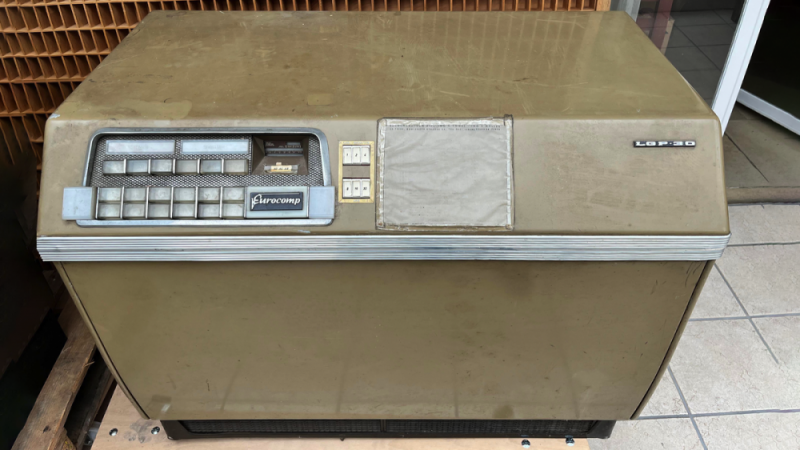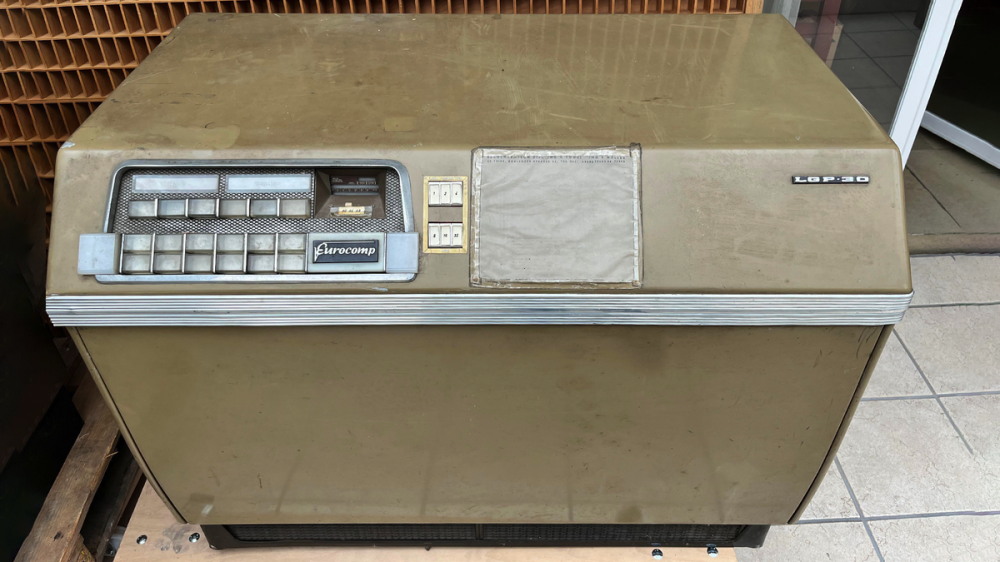This Long-Lost 1950s Computer Is the Subject of a 40-Year-Old Copypasta


Last week, Reddit user c-wizz posted several pictures of what he called “ancient computers” in the vintage computing subreddit. Among the images were several PDP-8/es and one LGP-30. Both models date back to the 1950s. However, the LGP-30 stands out because of its connection to “The Story of Mel.”
“The Story of Mel” is a computer programming legend written by Ed Nather and posted to Usenet in 1983. The tale details the travails of Mel Kaye, a computer programmer with extraordinary skills. In the story, Kaye does the “bulk of his programming” on an LGP-30. He inadvertently uses the machine to recode a Blackjack program so that it wins, and the human player loses every game. When Nather was asked to fix Kaye’s mistake, he discovered an infinite loop controlled by self-modifying code. As Kaye puts it in the tale, “If a program can’t rewrite its own code, what good is it?” The feat of software engineering impressed Nather so much that he refused to correct the bug.
“If a program can’t rewrite its own code, what good is it?”
Nather’s story became so popular among computer programmers in the 80s that it has been reposted countless times across the decades and is still the subject of study by programmers and hackers today.
As for the LGP-30 itself, it’s also a piece of computing history. It was one of the very first commercially available computers that individuals could buy and use. Only 45 were ever made, and the retail price of the early personal computer was $47,000 (almost half a million dollars in today’s money). Only a handful of the devices are known to exist in computer museums today. So, it’s a rare find indeed.
Other notable users of the LGP-30 include meteorologist Edward Lorenz’s development of the strange attractor, the butterfly effect, and chaos theory.
This particular unit of the LGP-30 is likely not the one referenced in The Story of Mel, but it’s not impossible. However, just finding one of them in the wild was enough to spark the imagination of the users on Reddit–A testament to the long-lasting impact of Nather’s programming epic.
Source: Ars Technica










